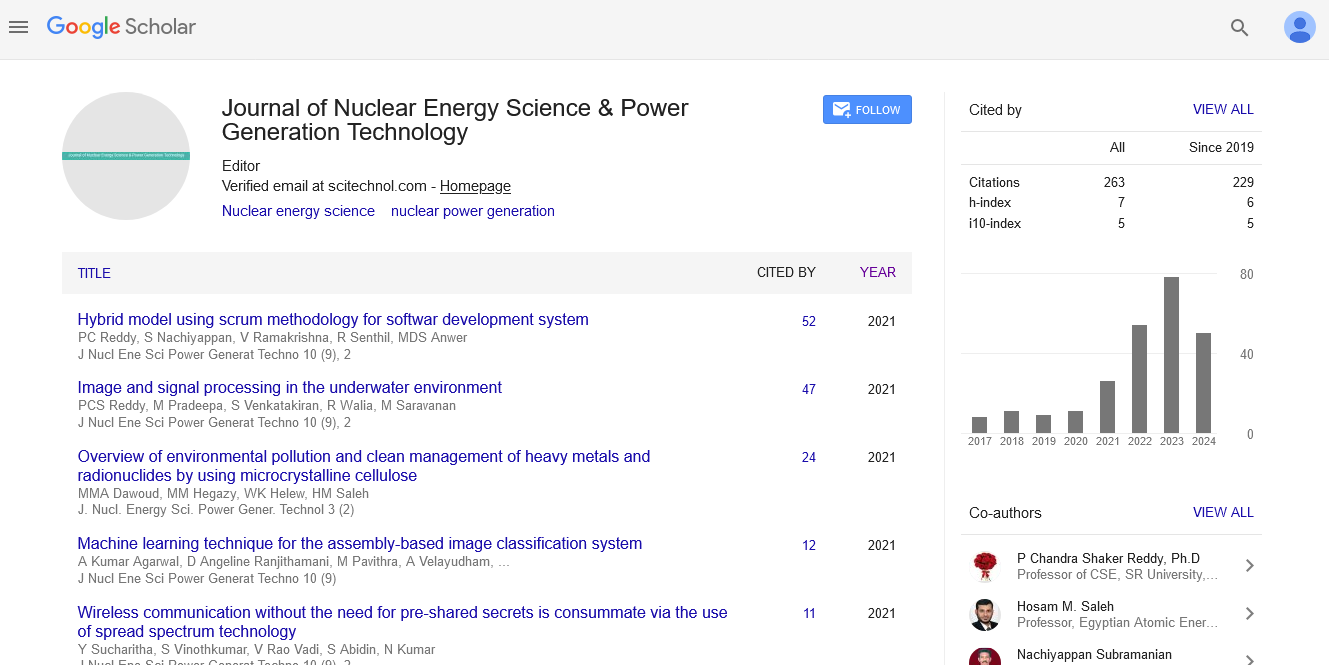Power quality disturbances detection based on strong trace filter
Li Kaicheng
Huazhong University of Science and Technology, China
: J Nucl Ene Sci Power Generat Technol
Abstract
Power quality disturbances (PQDs) detection plays a very important role in smart grid and customer safety, power quality evaluation, and power monitoring. Transient PQDs has strong impact on both grid and customer and bring serious consequences. Therefore, researches on transient PQDs detection are expected urgently in these days. The main challenges of transient PQDs detection are the interference caused by background noise and frequency deviation. This paper proposed a new method to detect transient power quality disturbances (PQDs) based on strong trace filter (STF). By appropriate filter model design, when there are stationary PQDs, the STF works as same as Kalman filter, while when there are transient disturbances, the STF indicates each sudden change of the distorted waveform by the fading factor (FF). The FF can also reveal which parameter of the signal component is changing and its sensitivity to sudden change can be tuned by the soften factor easily to avoid noise influence. Besides, the STF is a simple algorithm, which can be easily implemented on embedded system for real-time and time-varying detection. In addition, STF does not require synchronous sampling. Both simulation and experiment suggest that the STF is a good solution for transient PQDs detection. There is no doubt that the STF has a good prospect on transient PQDs detection.
Biography
Li Kaicheng completed his PhD in 1998 from Huazhong University of Science and Technology. He is the Professor of this university and mainly focuses on research on electromagnetic measurement, power quality analysis and control, electronic instrument transformer, intelligent instrument, etc. He teaches courses such as “Signals and Systems”, “Sensors and Automatic Measurement”, “Weak signal detection” and so on. He published more than 100 papers and gained more than 10 patents and 5 government awards. Recently, he has done a lot of work on power quality analysis and detection under the support of Natural Science Foundation of China, and published more than 50 related papers.
Email: likaicheng@hust.edu.cn
 Spanish
Spanish  Chinese
Chinese  Russian
Russian  German
German  French
French  Japanese
Japanese  Portuguese
Portuguese  Hindi
Hindi 

